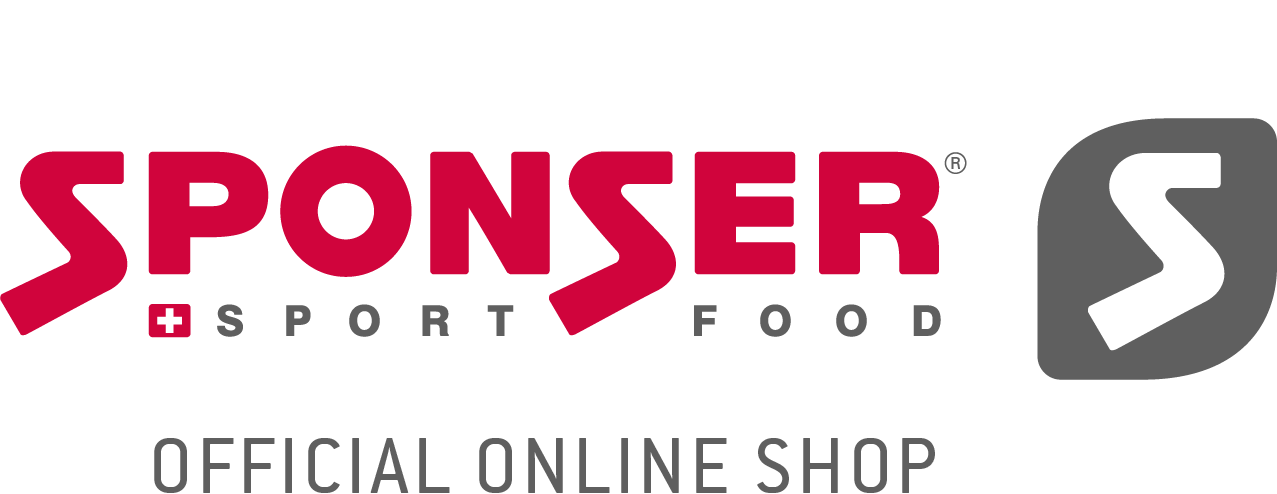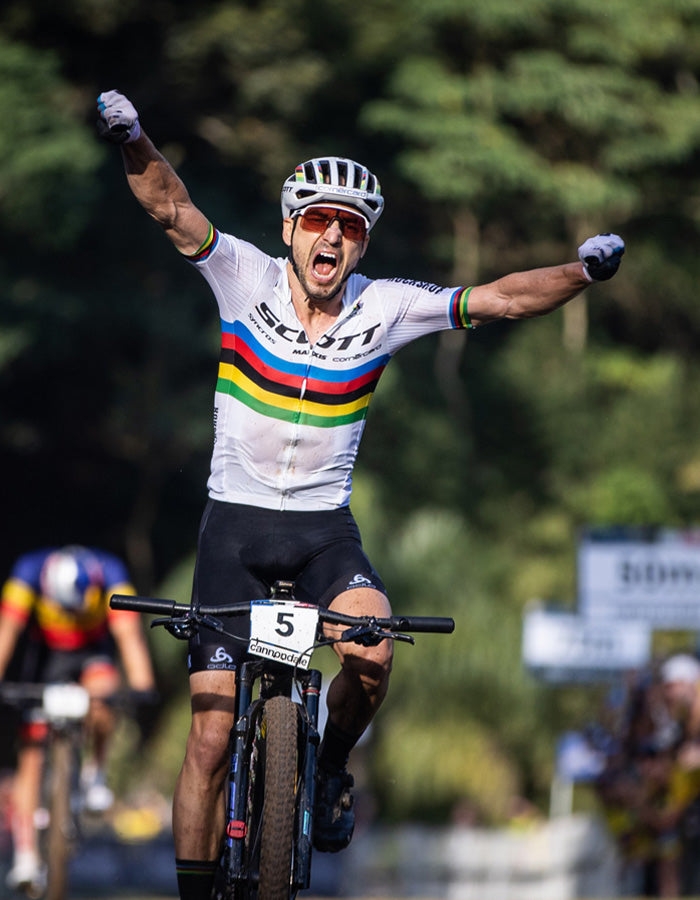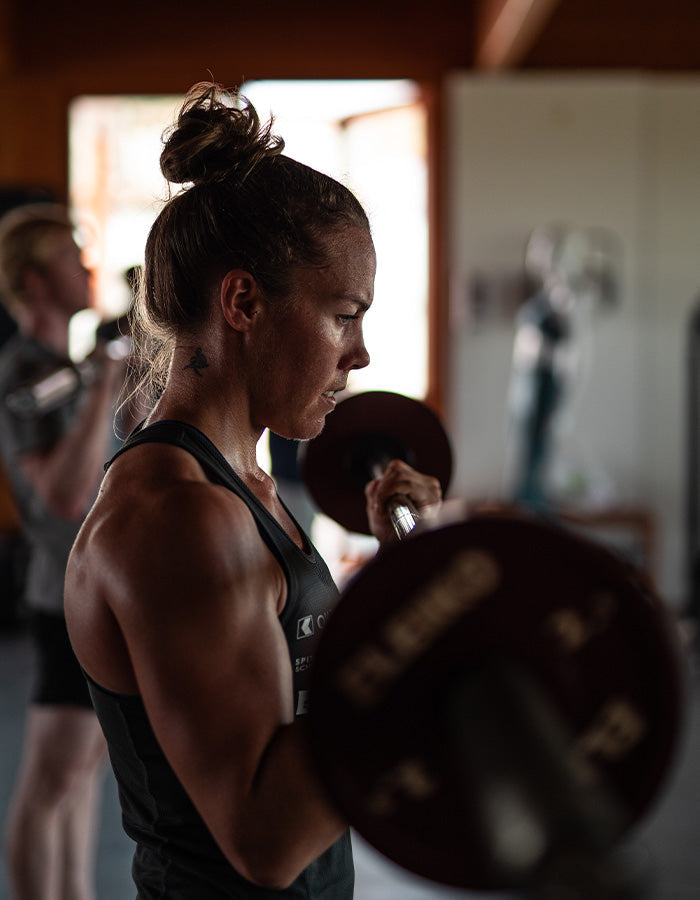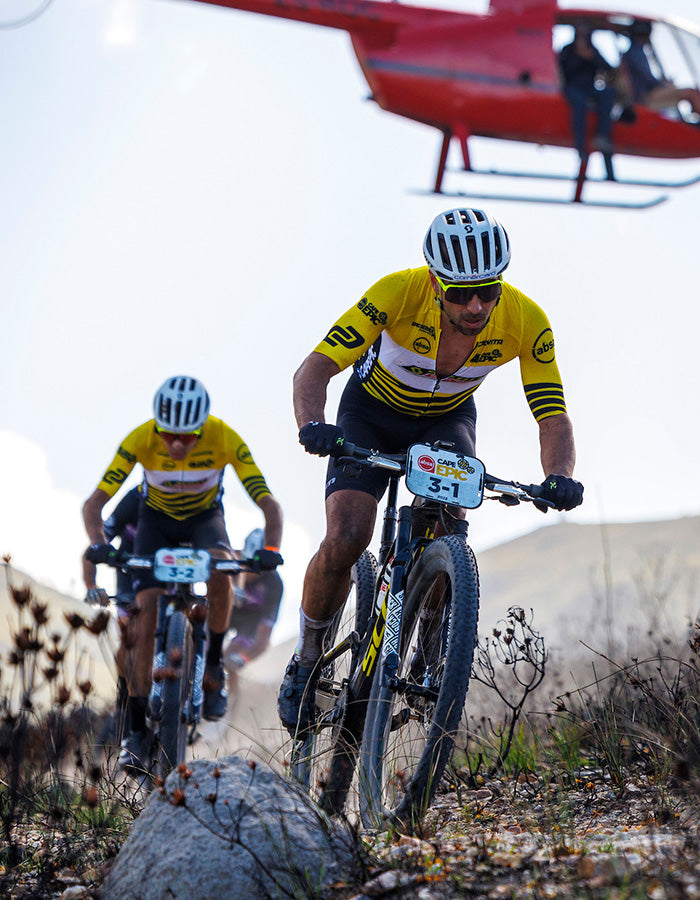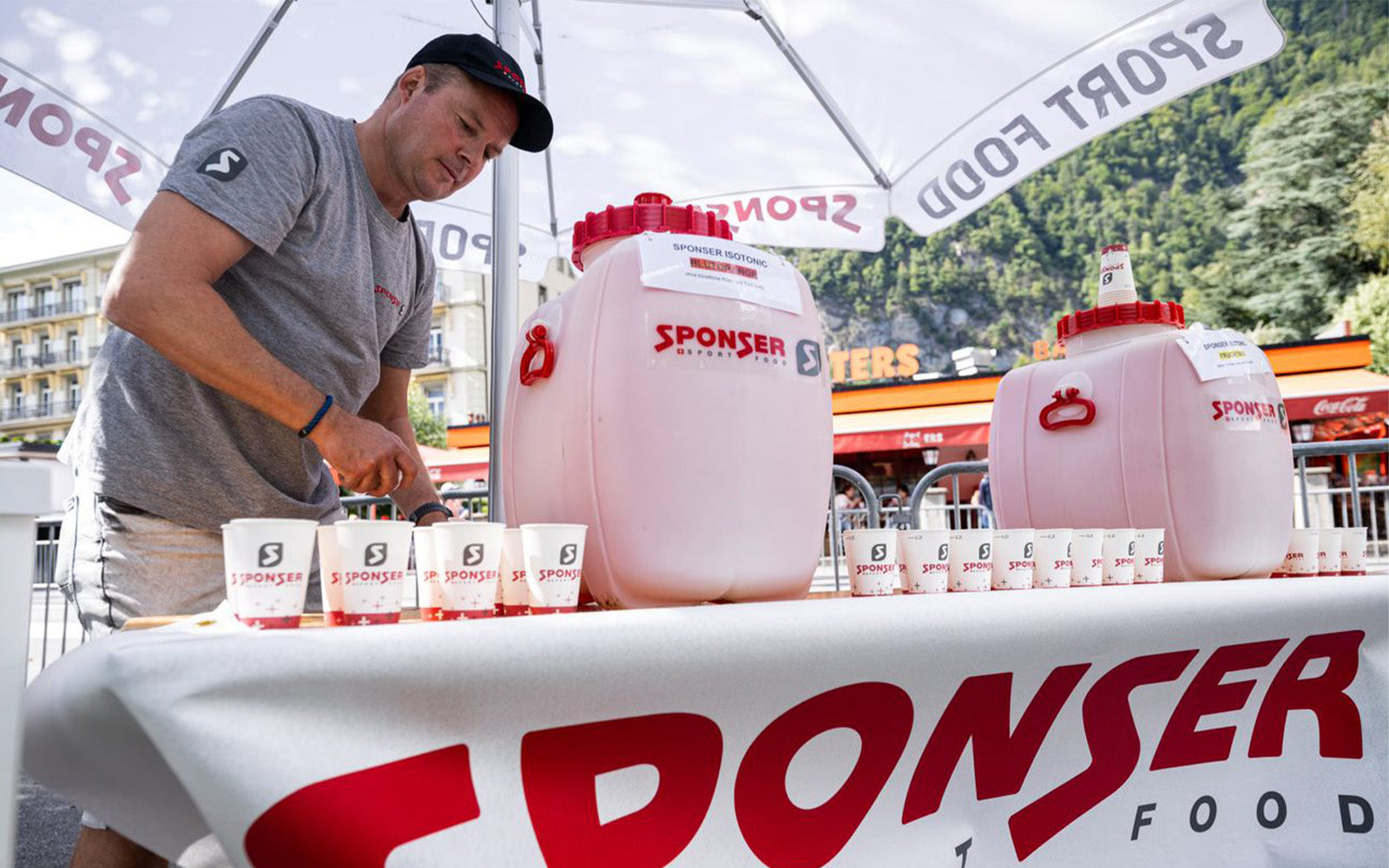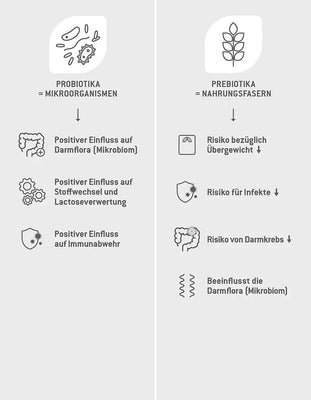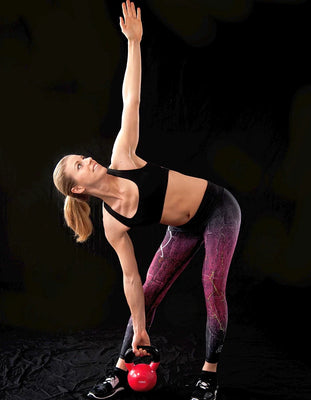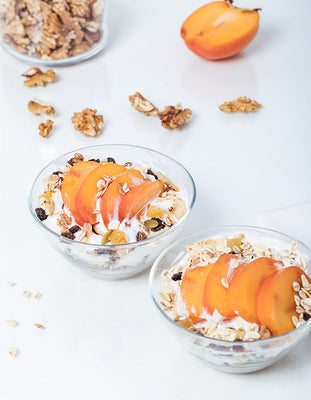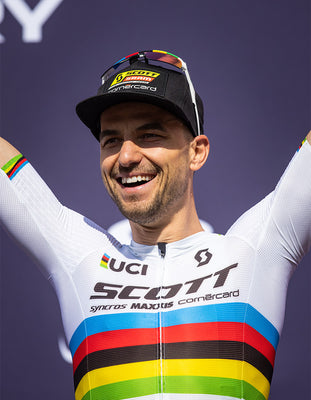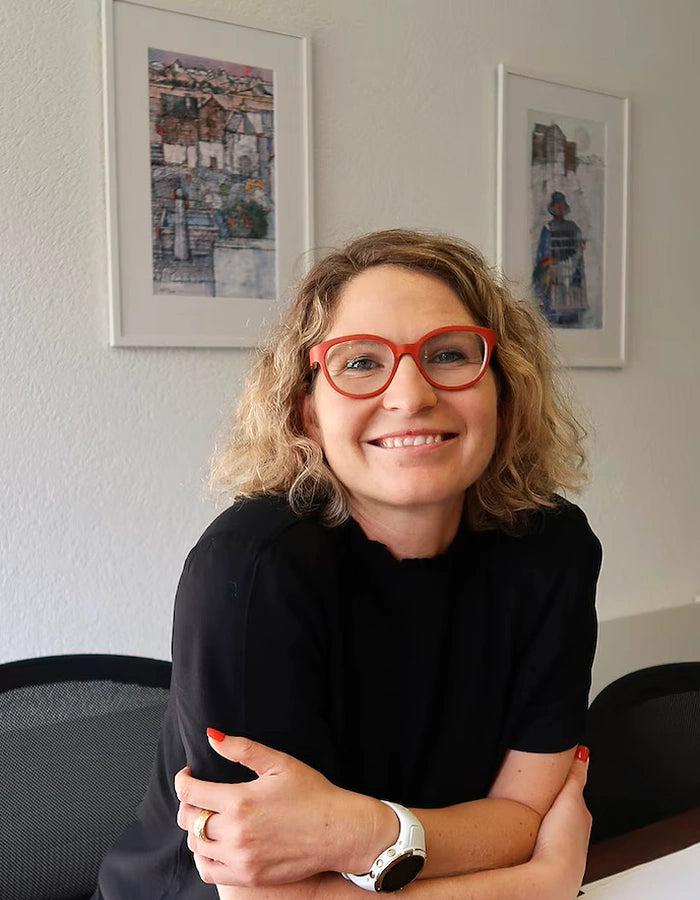
Photo credit: ZVG Patrick Bardelli / Galaxus
Interview with nutritionist and food science engineer Yvonne Forster
At SPONSER, everything is about sports nutrition and supplements since 1988. An interview with nutritionist and food sciencist Yvonne Forster, who has been with SPONSER for more than 16 years in product development and quality assurance.
Many terms on the subject of sports nutrition are haunting the net. We are talking about food supplements, sports nutrition or dietary supplements. What is what?
Ultimately it is rather a question of the application or purpose. It is not so clearly defined in the case of supplements. In my view and in terms of application, a protein shake can be a supplement just like a magnesium tablet.
What does the regulatory authorities say in this respect?
Swiss legislation defines dietary supplements. These are narrowly described. And then there are food supplements. A protein supplement, as the word indicates, belongs in the area of supplementary food. It is a useful addition to your everyday diet. We at SPONSER do not advise to nourish yourself mainly on our products, quite the contrary. We see our products as a supplement to a balanced, healthy diet. On a mountain hike you rarely want to carry a heavy backpack uphill. Then you prefer a few bars, for example. And afterwards you might treat yourself with a recovery shake, which helps the muscles to recover.
But aren't these powders and pills basically something for professionals only?
Originally, yes. But here comes the big «but». Professionals usually have a lot of time for regeneration. It is also part of their job to take care of their body, to nourish it properly. Accordingly, they also attach great importance to a diet that meets their needs. Often freshly prepared. Many of us do not have this privilege. We practice so-called health sports and squeeze our training into our everyday work. Recreation and the supply of the necessary nutrients are neglected. A contradiction. In this respect, such products may be more beneficial in many ways for non-professionals than for pro athletes.
The fitness market is booming. Retailers are also getting a piece of the pie. How does SPONSER assess this development?
It can be recognised that sports nutrition became a trend that has reached the general population. And of course, there are also more competitors on the market. We have been offering ready-to-drink protein drinks for about twelve years now. At that time, we were quite unique on the market. Today almost every dairy manufacturer offers also protein supplements. The products are becoming increasingly suitable for the mass market.
In which direction is the industry developing, is there a «next big thing» on the horizon?
In general, the biggest potential lies in high convenience: bars, effervescent tablets, ready-to-drink beverages etc., as well as products that are even more personalised than today.
What does the latter mean more precisely?
It has to be understood in the context of personalised nutrition concepts. Genetics, phenotype or the microbiome, i.e. the intestinal bacteria, could be triggered and play a decisive role.
Do you have a specific example of this?
We are currently offering a genetic caffeine metabolism test. Based on this analysis, we can then recommend a specific product and proper application. It is the interaction of science and product recommendation. Thus, the next trend will be concepts towards more personalisation.
Where do you get the relevant expertise from?
With regard to pharmacogenetics, we are in regular contact with a specialised doctor. We are also in close contact with experts from the SSNS, the Swiss Sports Nutrition Society. We use various networks.
How do you create a new product?
Inputs usually come from different sides. For example, from athletes who want to have a product developed further. Often it is the raw material manufacturers who come to us. For example, with raw materials that contribute to joint health and come with clinical studies. Once these raw materials have been clinically researched, the manufacturers are promoting and offering them to the industry. But also our employees contribute ideas for new products. We then formulate these ideas internally, look for suitable raw materials and assess the market potential.
How long does this process take?
Quite differently. From two months to several years, I have experienced everything.
Your products are not without controversy. There are experts, such as the now deceased Manfred Donike, former head of the Institute of Biochemistry in Cologne, who question the effect and said: «Food supplements produce nothing but expensive urine. It is completely unnecessary to use them». What is your answer to this?
Well, you can easily jog for two hours without taking anything. But I claim that you recover better from the exertion and feel less drained if you take an appropriate supplement during the run. And maybe you run a little faster during those two hours. So, it certainly works.
With creatine, for example, we know that there are so-called responders or non-responders. The same applies to caffeine. If you are a responder, you will feel an effect, but if you are a non-responder, you will not. If I was not convinced of the benefits of our products, I would not be working here.
Where does dietary supplementation stop, where does doping begin?
The rules are very clear. For us this is not an issue. We have no such substances in our house. CBD is one. We avoid any such substance in our facilities. We do not even have any product with hemp protein. We invest a lot of money to procure clean raw materials so that we can guarantee doping-free products. We will certainly not jeopardise this reputation.
As an
FSSC 22000 certified Swiss food manufacturer, we only use raw materials from suppliers who also have ISO or GFSI recognised certificates. All raw materials are documented in quality agreements and are accompanied by a certificate of analysis, which allows complete traceability. The company, based in Wollerau SZ, is also subject to the high control standards of the Swiss health authorities.
Related articles
on
» expert advice
on
» interviews
on
» science
Author: Patrick Bardelli, Senior Editor Galaxus Zurich
First publication in October 2020 on
www.galaxus.ch -> Sport -> Sports Nutrition
